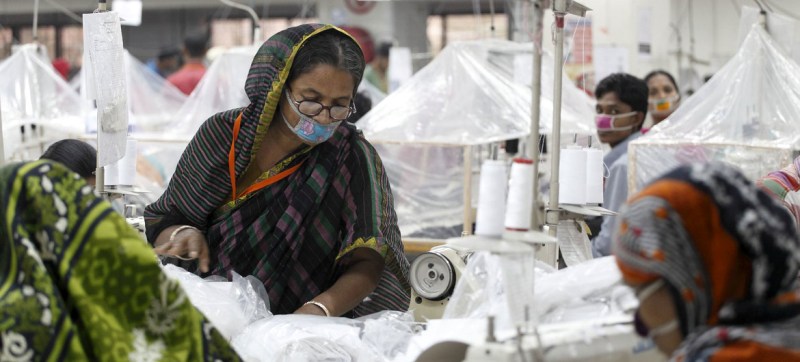 Economy
Economy UN chief urges debt relief extension for middle-income countries
New York: Innovative measures to address debt are required to help the world’s more than 100 middle-income countries expand their economies and exit the COVID-19 pandemic, UN Secretary-General António Guterres told the General Assembly on Thursday.
Addressing a high-level meeting on these nations, which account for more than half of the UN’s 193 Member States, he underlined the need for financing to help them recover in the wake of the global crisis.
He said that middle-income countries should have their debts suspended into 2022 to cope with the social and economic impact of the virus.
Leaving no nation behind
Many were already dealing with mounting debt before the pandemic, which has only further aggravated the situation.
“In small island states, for example, the collapse of tourism has greatly hindered their capacity to repay debts. And while the global response to the debt crisis is rightly attempting to support low-income countries, middle-income countries must not be left behind”, he stated.
Diversity defines the world’s middle-income countries, which were already home to some 62 per cent of the world’s poor prior to the pandemic.
The list includes India, which has a population of more than one billion, and Palau, an archipelago in the Pacific island with less than 20,000 people.
Besides population size, these countries also vary in economic activity, geography and income levels per capita, which ranges from $1,000 to $12,000 annually, meaning they often exceed per capita income thresholds for debt relief.
Tackle longstanding weaknesses
Guterres stressed the need for better mechanisms and international cooperation to address what he characterized as their mounting and unsustainable debt levels.
“Even if these countries manage to avoid default, they will see long-lasting limitations on critical government spending on a variety of development and climate objectives in the years to come”, he warned.
He underlined the need for “a new debt mechanism” that includes debt swaps, buy-backs and cancellations.
'Tackle long-standing weaknesses’
“This is the moment to tackle long-standing weaknesses in the international debt architecture, from lack of agreed principles, to restructurings that provide too little relief, too late.
“Innovative instruments to allow debt restructuring and meaningful debt reduction can help middle-income countries expand their fiscal space to boost investment and steer a resilient and sustainable recovery from the crisis.”
This past March, the Secretary-General convened world leaders for a meeting to bolster support for action to stave off the debt crisis in developing countries.
The UN chief was encouraged to see growing recognition around the need for new Special Drawing Rights (SDRs), a type of foreign reserve asset developed by the International Monetary Fund (IMF). However, he said unused SDRs must be re-allocated to support vulnerable nations, including middle-income countries.
Last year, the G20 leading economies announced a debt service suspension initiative which allows the world’s poorest countries to temporarily halt bilateral credit payments.
The Secretary-General said the measure should be extended into 2022 and “made available to highly indebted, vulnerable middle-income countries that request it.”
Support Our Journalism
We cannot do without you.. your contribution supports unbiased journalism
IBNS is not driven by any ism- not wokeism, not racism, not skewed secularism, not hyper right-wing or left liberal ideals, nor by any hardline religious beliefs or hyper nationalism. We want to serve you good old objective news, as they are. We do not judge or preach. We let people decide for themselves. We only try to present factual and well-sourced news.







